Acupuncture for Headaches
 Headaches are extremely common. While everyone experiences an occasional headache, statistics show that 1 out of 6 people suffer from chronic headaches.
Headaches are extremely common. While everyone experiences an occasional headache, statistics show that 1 out of 6 people suffer from chronic headaches.
Acupuncture can effectively relieve headaches, as well as treat their underlying causes. In fact, headaches are one of the conditions most commonly seen in acupuncture clinics today. It can offer powerful relief without the side effects that prescription and over-the-counter drugs can cause.
Headaches that can be treated with acupuncture include migraines, tension headaches, headaches occurring around the menstrual cycle, sinus headaches and stress-related headaches.
How Acupuncture Treats Headaches
Many variables are looked at in order to properly diagnose and successfully treat headaches. Each individual is treated differently depending on their unique symptoms.
Some of the factors that will determine what acupuncture points and other treatment techniques are used include: what triggers the headaches; the location, frequency and intensity of the headaches; the quality of the pain; the time of day that they occur; what helps the headaches and what makes them worse.
Types of Headaches
When treating with acupuncture, headaches are often classified by their location. This is only a broad guideline which needs to be further refined and integrated into the treatment for each individual, but this shows meridians and patterns that affect each area of the head.
Top of Head: Liver Meridian (Liver Blood Deficiency, Liver Yang Rising)
Sides of Head: Gall-Bladder Meridian (Liver-Yang, Liver-Fire or Liver-Wind Rising)
One Side Only: Gall-Bladder Meridian (Liver-Yang or Liver-Fire Rising)
Temples: Gall-Bladder Meridian (Liver-Yang, Liver-Fire or Liver-Wind Rising)
Behind the Eyes: Liver Meridian (Liver Blood Deficiency, Liver Yang Rising)
Forehead: Stomach Meridian (Stomach Deficiency or Stomach-Heat)
Back of Head (Occipital): Bladder Meridian (Kidney Deficiency or Damp-Heat in the Bladder) or External Wind
Whole Head: Kidney-Essence Deficiency or External Wind
Acupuncture can significantly relieve headaches and is an important component to managing recurring headaches and migraines. If you have any questions, please call for a consultation.
Studies show that acupuncture can treat headaches.
 Two separate systematic reviews by Cochrane Researchers show that acupuncture is an effective treatment for prevention of headaches and migraines.
Two separate systematic reviews by Cochrane Researchers show that acupuncture is an effective treatment for prevention of headaches and migraines.
In each study, the researchers tried to establish whether acupuncture could reduce the occurrence of headaches. One study focused on mild to moderate but frequent “tension-type” headaches, whilst the other focused on more severe but less frequent headaches usually termed migraines. Together the two studies included 33 trials, involving a total of 6,736 patients.
Overall, following a course of at least eight weeks, patients treated with acupuncture suffered fewer headaches compared to those who were given only pain killers. In the migraine study, acupuncture was superior to proven prophylactic drug treatments.
In one specific study involving 270 patients, acupuncture cut tension headache rates almost in half. Researchers divided the patients who reported similarly severe tension headaches into three groups for the study. Over the project’s eight-week period, one group received traditional acupuncture, one received only minimal acupuncture (needles inserted at non-acupuncture points, and at only shallow levels), and the third group received no treatment.
Those receiving the traditional acupuncture reported headache rates of nearly half that of those who received no treatments, suffering 7 fewer days of headaches. The minimal acupuncture group suffered 6.6 fewer days, and the non-acupuncture group suffered 1.5 fewer days. When they received acupuncture after the main study period, the “no treatment” group also reported significantly fewer headache days.
The improvements continued for months after the treatments were concluded, rising slightly as time went on.
British Medical Journal, July 2005
Acupuncture for tension-type headache.Cochrane Database of Systematic Reviews, Issue 1. Art. No.: CD007587 DOI: 10.1002/14651858.CD007587
Acupuncture for migraine prophylaxis. Cochrane Database of Systematic Reviews, 2009, Issue 1. Art.No.: CD001218 DOI: 10.1002/14651858.CD001218.pub2
7 Healthy Habits for Headache Suffereres.
- Diet- Eat regular meals at regular times to avoid your blood sugar from falling too quickly. Also, avoid foods and drinks that are known to trigger headache attacks including processed meats, aged cheese, alcohol, and foods and beverages that contain aspartame.
- Sleep- Maintain a regular sleeping schedule, including weekends and vacations.
- Stress- Stress is one of the most common headache and migraine triggers. Implement stress reduction techniques into your daily life.
- Exercise- Exercise stimulates the body to release endorphins, which are brain chemicals that improve mood and relieve stress, which are known headache triggers.
- Headache Diary- Keep a diary of when your headaches occur, along with any triggers, and share the information with your healthcare provider.
- See Your Healthcare Provider- Make an appointment with your healthcare provider to specifically discuss your headache.
- Be a Partner in Your Headache Care- Be informed, be a participant in your treatment and be an advocate for your headache care.
Between Chocolate and Cucumber
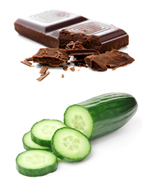 Not only food preferences can describe habits and traditions of a particular individual, but they can also tell about individual’s health. IF A PERSON UNSTOPABLY CRAVES FOR:
Not only food preferences can describe habits and traditions of a particular individual, but they can also tell about individual’s health. IF A PERSON UNSTOPABLY CRAVES FOR:
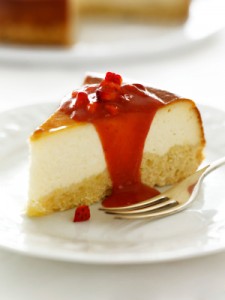 SWEET FOODS: If a person craves for sweets that could indicate nervous and mental strain. Glucose actively participates in producing stress hormone – the adrenaline, which is the main supplier of energy for the brain. Sugar is consumed faster during stressful periods and the body constantly requires more new sugar intakes. During these times, it’s not a sin to spoil yourself. Dark chocolate would be a great choice, and it’s better to restrict yourself from consuming pies and butter cakes which contain many heavy carbohydrates. But if the cravings for something sweet become intrusive over prolonged periods of time, you constantly are suffering from thirst and increased appetite and take abnormally large amount of bathroom brakes, these could be the signs of developing sugar diabetes. At this point, it wouldn’t hurt to check blood sugar levels and pay a visit to an endocrinologist.
SWEET FOODS: If a person craves for sweets that could indicate nervous and mental strain. Glucose actively participates in producing stress hormone – the adrenaline, which is the main supplier of energy for the brain. Sugar is consumed faster during stressful periods and the body constantly requires more new sugar intakes. During these times, it’s not a sin to spoil yourself. Dark chocolate would be a great choice, and it’s better to restrict yourself from consuming pies and butter cakes which contain many heavy carbohydrates. But if the cravings for something sweet become intrusive over prolonged periods of time, you constantly are suffering from thirst and increased appetite and take abnormally large amount of bathroom brakes, these could be the signs of developing sugar diabetes. At this point, it wouldn’t hurt to check blood sugar levels and pay a visit to an endocrinologist.
SPICY FOODS: Do you love Mexican or Thai cuisine? Does the food seem unflavored and insipid until you 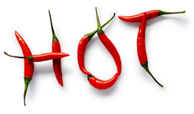 pour half a bottle of Tabasco sauce in it? These things could mean that you have a “lazy stomach” that slowly digests food and requires stimulus. And hot spices are exactly the things that stimulate the digestion processes. You can check your stomach condition by means of gastro copy. During bad lipid metabolism, individuals often desire spicy foods. Spicy foods contribute to reduction of fats and bad cholesterol while “cleaning up” the vessels. However they can also irritate gastric mucosa. It’s not recommended to eat a lot of chili or hot salsa on empty stomach.
pour half a bottle of Tabasco sauce in it? These things could mean that you have a “lazy stomach” that slowly digests food and requires stimulus. And hot spices are exactly the things that stimulate the digestion processes. You can check your stomach condition by means of gastro copy. During bad lipid metabolism, individuals often desire spicy foods. Spicy foods contribute to reduction of fats and bad cholesterol while “cleaning up” the vessels. However they can also irritate gastric mucosa. It’s not recommended to eat a lot of chili or hot salsa on empty stomach.
BITTER FOODS: Craving for bitter foods is the signal that the digestive system might be full of waste matter, or that a particular illness is not fully cured, or that there are toxins in the body. It might be helpful to take a few restful days or to go through some body cleansing procedures.
 SOUR FOODS: Craving for sour foods is sometimes a sign of gastritis with insufficient secretory function during which gastric juices have lowered acidity. During common colds and high body temperature, sour drinks like black tea with lemon, can help to alleviate symptoms and increase appetite.
SOUR FOODS: Craving for sour foods is sometimes a sign of gastritis with insufficient secretory function during which gastric juices have lowered acidity. During common colds and high body temperature, sour drinks like black tea with lemon, can help to alleviate symptoms and increase appetite.
SALTY FOODS: If all food constantly seems unsalted and you begin drooling over 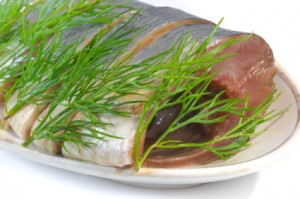 salted pickles and hearing, it could be a signal of inflammation, infection in your body, or failing immune system. Often enough these occur due to problems with the urogenital system like cystitis, prostatitis, or inflammation of adnexi of the uterus.
salted pickles and hearing, it could be a signal of inflammation, infection in your body, or failing immune system. Often enough these occur due to problems with the urogenital system like cystitis, prostatitis, or inflammation of adnexi of the uterus.
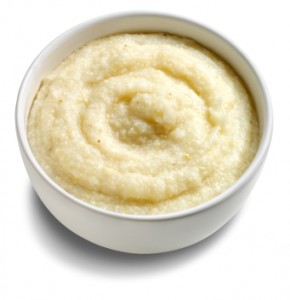 BLAND FOODS: The need for unflavored bland foods is often originating during gastritis or stomach ulcers with elevated acidity, during constipation, and problems with liver and gallbladder. Unflavored food usually purges and helps at lowering spastic pains and relaxes the stomach. If all the food seems bland and tasteless, you are constantly in a bad mood and tired, then it could mean depression. Lack of ability to taste flavor could sometimes indicate a brain-related illness.
BLAND FOODS: The need for unflavored bland foods is often originating during gastritis or stomach ulcers with elevated acidity, during constipation, and problems with liver and gallbladder. Unflavored food usually purges and helps at lowering spastic pains and relaxes the stomach. If all the food seems bland and tasteless, you are constantly in a bad mood and tired, then it could mean depression. Lack of ability to taste flavor could sometimes indicate a brain-related illness.
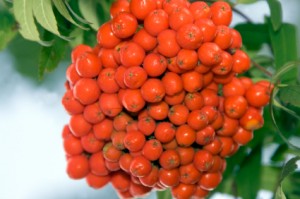 ASTRINGENT FOODS: If you suddenly want to eat a fruit like persimmon, it could mean that defenses of your body are at risk. Food products with distinct astringent taste contribute to the division of skin cells (help to heal scabs and cuts, improve face color). They help to stop the bleeding (for example during myomas) and get rid of mouth sputum during bronchopulmonary problems. But astringent food condenses blood which could be dangerous for persons with elevated coagulability (during varicosity, hypertension, and certain heart illnesses).
ASTRINGENT FOODS: If you suddenly want to eat a fruit like persimmon, it could mean that defenses of your body are at risk. Food products with distinct astringent taste contribute to the division of skin cells (help to heal scabs and cuts, improve face color). They help to stop the bleeding (for example during myomas) and get rid of mouth sputum during bronchopulmonary problems. But astringent food condenses blood which could be dangerous for persons with elevated coagulability (during varicosity, hypertension, and certain heart illnesses).
